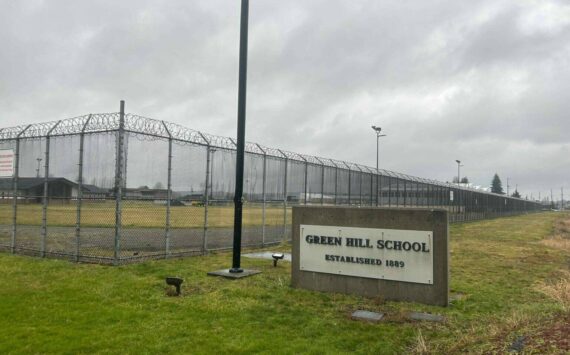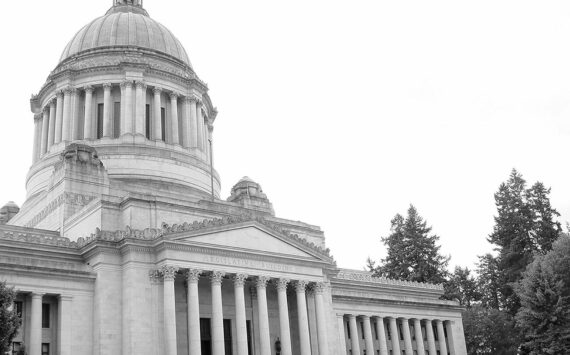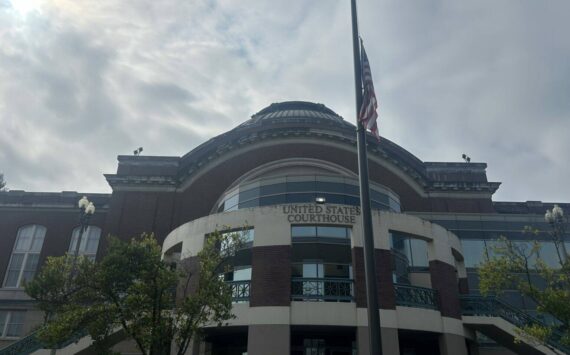By Morf Morford
Tacoma Daily Index
I’ve seen several articles on the decline of interest in literature and the humanities through the past year or so.
It is understandable. The so-called liberal arts take time. And work. But I would contend that we need them more than ever.
We are in an era of political and philosophical “silos” where we are – and are guided by our social media choices to be – ensconced in “echo chambers” of our own making.
Civil and informative conversation on any issue of importance (and many not-so-important) is pointless and frustrating.
Consider your own impulses as any topic emerges or news headline pops into your newsfeed; is your default answer “If only everyone agreed with me, we wouldn’t have these problems!”
Be honest; when was the last time you changed your mind on any issue – not big issues like whether you think this president (or any before him) was the best/worst ever in American history?
Is Colin Kaepernick a disgrace or a hero?
Has your position on gun control/ gun rights changed lately?
Climate change real?
Love or hate plastic straws?
Should your neighbor have the right to hoist that Confederate (or Nazi) flag?
I’m guessing that you – and those you spend time with (and watch and listen to) haven’t changed opinions lately.
If anything, most of us are further locked in our positions with the corollary belief that those who don’t agree with us are “libtards” morons, deceived or outright evil.
To put it mildly, this is no way to run a family, or neighborhood – or nation.
There is a solution. It takes work, serious thought and dedication. Most won’t want to put in the effort to understand – and maybe even learn from – a different point of view.
It takes courage and compassion – and sometimes pure grit – to listen deeply to someone you disagree with.
But if you can, and hear them out, and maybe even put their argument into your own words, you may not change your mind – or theirs – but you will, in most cases, preserve the friendship – and just maybe add another layer of depth and respect to the relationship.
This is, at its foundation, what the liberal arts do. They take an experience or relationship and look at it, challenge it – maybe even question it.
Criticism, in this sense, does not mean to “criticize” but to analyze deeply and critically, to peer beyond the easy (and lazy) assumptions and bland slogans that to many of us hide behind.


Photo: Morf Morford
As an example, let’s look at a well-known poem by Robert Frost. Written in 1914, this poem seems to be a portrayal of two New England neighbors working together to repair a mutual stone wall between their properties.
As with any enduring poem, song or work of art, it reaches across categories and decades.
As I write this, the United States is nearly paralyzed – and certainly polarized – around another kind of wall.
As I highlight certain aspects of this more-than-hundred-year-old poem, consider how the issues raised are semi-eternal and void of the easy answers we all might want.
Mending Wall
By Robert Frost
Something there is that doesn’t love a wall,
That sends the frozen-ground-swell under it,
And spills the upper boulders in the sun;
And makes gaps even two can pass abreast.
The work of hunters is another thing:
I have come after them and made repair
Where they have left not one stone on a stone,
But they would have the rabbit out of hiding,
To please the yelping dogs. The gaps I mean,
No one has seen them made or heard them made,
But at spring mending-time we find them there.
I let my neighbor know beyond the hill;
And on a day we meet to walk the line
And set the wall between us once again.
We keep the wall between us as we go.
To each the boulders that have fallen to each.
And some are loaves and some so nearly balls
We have to use a spell to make them balance:
“Stay where you are until our backs are turned!”
We wear our fingers rough with handling them.
Oh, just another kind of out-door game,
One on a side. It comes to little more:
There where it is we do not need the wall:
He is all pine and I am apple orchard.
My apple trees will never get across
And eat the cones under his pines, I tell him.
He only says, “Good fences make good neighbors.”
Spring is the mischief in me, and I wonder
If I could put a notion in his head:
“Why do they make good neighbors? Isn’t it
Where there are cows? But here there are no cows.
Before I built a wall I’d ask to know
What I was walling in or walling out,
And to whom I was like to give offence.
Something there is that doesn’t love a wall,
That wants it down.” I could say “Elves” to him,
But it’s not elves exactly, and I’d rather
He said it for himself. I see him there
Bringing a stone grasped firmly by the top
In each hand, like an old-stone savage armed.
He moves in darkness as it seems to me,
Not of woods only and the shade of trees.
He will not go behind his father’s saying,
And he likes having thought of it so well
He says again, “Good fences make good neighbors.”
First of all, the title; Mending wall.
Yes, the setting is two men literally “mending” a wall. But couldn’t you also say that the wall, and the shared work of putting it back together is also an act of “mending” – healing and restoration?
There is at least the possibility that the two men end their day with a deepened appreciation – or at least knowledge of each other.
A wall, at its best, like this one should be mutually agreed upon as to purpose, location and budget. It should be a sign of unity – not division – of neighbors.
The first ten or so lines address the natural forces that seem to unite in conflict against any wall – weather, corrosion, rodents, earth tremors and much more (like elves, mentioned a few lines later) act as if they resent the intrusion of any man-made monument to pride, power or property.
In the inevitable silence of manual labor, the question “why?” comes up. The answer “He only says, Good fences make good neighbors” sounds like a response I’d get from my pro-wall neighbor today.
“No border, no country” is the response I usually get. The fact that we, and virtually every other country in the world have not had a ‘wall” for centuries, if not millennia, doesn’t strike him as relevant or meaningful.
My neighbor, and his favorite talking heads and politicians, also tells me that ‘Walls work!”- somehow blissfully unaware of the collapse of the Berlin Wall, the touristification of China’s Great Wall and the historical precedence of the futility of walls of defense as represented by the Maginot Line, which as Wikipedia puts it, has become a “metaphor for expensive efforts that offer a false sense of security”. (1*)
“Walls” are rarely a sign of safety and stability – usually the opposite. Israel/ Palestine with its maze of walls, barricades and armed checkpoints is hardly a model of security achieved through the use of walls.
Before I built a wall I’d ask to know
What I was walling in or walling out,
And to whom I was like to give offence.
Walls have a nasty habit, like almost everything else made by human hands, of serving other – sometimes exactly opposite uses.
What if Canada, for example, proposed a northern “wall” to match the “wall” on our southern border? Who would be “offended”? And who “walled in or out”?
We should know who is being “walled in or walled out” long before a budget is allocated and construction begun.
I was born and raised in the Pacific Northwest. We have, and have need for, few walls. I prefer open spaces – mountain vistas with no obstructions.
The conclusion of the poem sounds like the end of too many recent political conversations –
He moves in darkness as it seems to me,
Not of woods only and the shade of trees.
He will not go behind his father’s saying,
And he likes having thought of it so well
He says again, “Good fences make good neighbors.”
The neighbor blandly repeats, with some satisfaction it appears, his father’s phrase “Good fences make good neighbors” as he commends himself for “having thought of it so well.”
In other words, he thinks his slogan is original when it is an echo of his father, if not his father’s father.
We deserve – and need – better conversations, conversations where we learn something and maybe, just maybe, change our minds.
(1*) https://en.wikipedia.org/wiki/Maginot_Line








